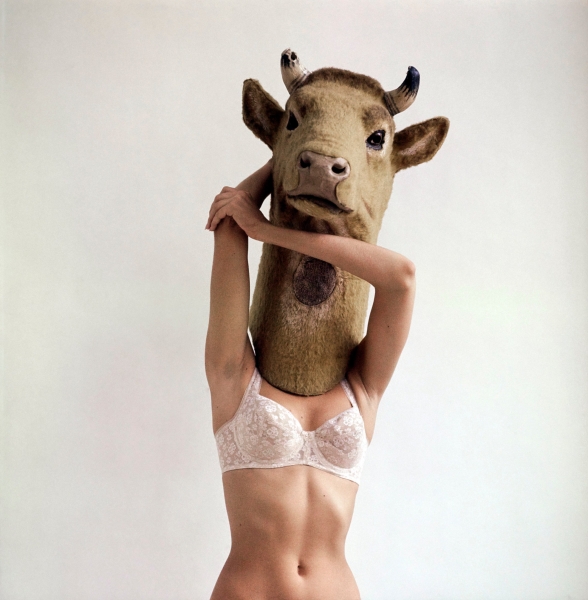How far would you go for dewy, radiant skin? The internet is pushing that boundary with the popularity of beef tallow, which is being touted as the latest viral skincare trend. If you're not sure what that is—let me warn you, it's not for the weak. Beef tallow is animal fat from a cow.
The skincare trend, which a lot of us first came across when Nara Smith used it as the basis for her homemade moisturizer and which has since been peddled by reams of skinfluencers on TikTok, apparently does wonders for the skin. It protects the skin barrier, they say, and can also sometimes help with acne (it’s an anti-inflammatory). Truly, what can’t beef tallow do?
As someone who doesn’t believe in a fad until I experience it first hand (see also: drinking 2.5 liters of water daily or cutting out ultra-processed foods), I decided to try this one out for myself. I’ve always had acne-prone skin, and love to experiment with a new product, so I was genuinely looking forward to smearing my face in what is essentially cow lard. Besides, it’s a natural product, so how much harm can a bit of beef suet to the face actually do?
And so, just like my cave-dwelling ancestors before me would have done (minus the internet), I tracked down some 100% organic grass-fed pure beef tallow, the kind often used for animal food, and commenced my interesting new skincare regime.
Days one to three
The first few days were easy. Wake, slather, slather, sleep, rinse and repeat (I just swapped it out in place of my usual CeraVe moisturizer). The tallow itself had a thick, balmy quality, not dissimilar to coconut oil, which felt a bit strange when it came to rubbing it all over my face. I very quickly developed a slick, greasy sheen—like a baby that’d just been born, but creepier.
The tallow also has a faintly fatty, beefy scent, which isn’t the most appealing to be around. My wife began checking whether I’d put my beef tallow on before approaching me and the one time she forgot, she recoiled in horror, disgusted. Aside from all that, the experiment was from the outset fairly breezy.
Days three to five
This was when I started experiencing beef tallow fatigue. The scent, which at first was sort of fine, very quickly became genuinely repulsive. The greasiness was also an issue. Everyday, I smeared beef fat on my face, followed by makeup, and then took the subway to work, which for someone with acne-prone skin felt incredibly counterintuitive. Still, no one else seemed to notice that I was engaged in my own private hell. When I asked my colleague Hannah how my skin looked, she said “good” (this could have been a lie).
By day five, I also started experiencing the beginnings of a breakout around my cheeks, chin and, for some reason, temples? My skin, previously mostly acne-free with a bit of scarring, started developing active acne again. Even so, I was only halfway through the experiment – I couldn’t give up just yet. What if my skin was “purging” in a similar way to when you start retinol? Despite my face practically screaming at me, I decided to persist.
Days five to seven
I’ve never been happier for an experiment to come to an end. By day six, I’d developed the sort of comedonal acne that I haven’t had since my early twenties and my cheeks had begun to actually feel a little inflamed. Every time I tried to treat one spot, a new one burst forth in its wake like some kind of nightmarish game of whack-a-mole. There was only one thing for it: I had to throw this stuff away. Even looking at it was giving me pimples. I chucked it in the trash, relieved it was no longer in my house or part of my routine.
The thing with any viral skincare trend is that a one-size-fits-all approach simply doesn’t exist. We all have different skin types, sensitivities and triggers, meaning that one person’s miracle product might be another person’s unmitigated disaster. I have no doubt that tallow might work for those with super dry skin—plenty of people with eczema, for instance, have claimed that it can be soothing, while others have hailed the benefits for mature skin (again, don’t believe the hype until you’ve tried it, or at least consulted with a dermatologist).
For me though? I may as well have dunked my face in fryer oil. Which is, weirdly, exactly what beef tallow is usually used for.

